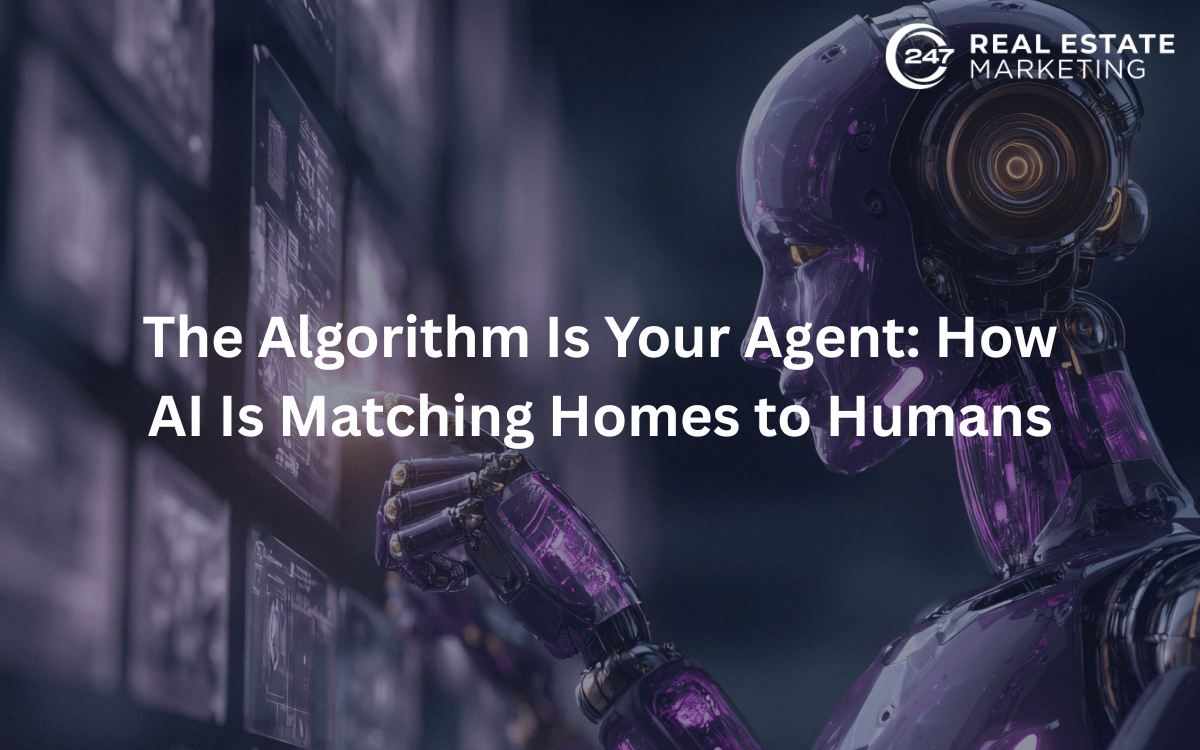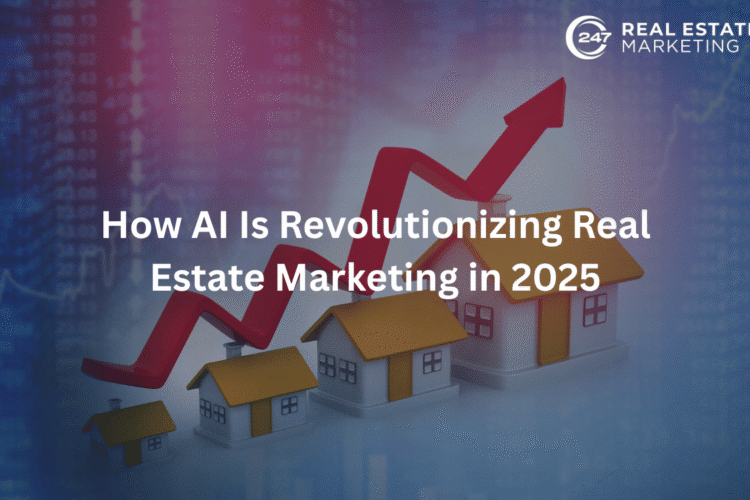
Imagine browsing homes online and being shown properties that feel just right not just in budget, but in vibe, layout, and even neighborhood culture. That’s not luck. That’s AI-powered real estate marketing at work.
In 2025, artificial intelligence isn’t just a buzzword, it’s becoming the backbone of how homes are marketed, discovered, and sold. From personalized recommendations to predictive analytics, AI is transforming the real estate experience for both buyers and agents. And yes, it’s doing more than just crunching numbers, it’s learning what humans want.
How AI Is Changing Real Estate
AI in real estate is no longer limited to chatbots or automated emails. It’s now deeply integrated into platforms that:
- Match buyers with homes based on lifestyle preferences, not just price and location.
- Predict market trends to help agents price listings more accurately.
- Automate marketing campaigns with personalized content and timing.
- Enhance SEO for real estate websites, making listings more discoverable.
One standout innovation is Zillow’s AI-powered “Listing Insights,” which uses machine learning to highlight features buyers are most likely to care about like natural light or walkability based on browsing behavior. Similarly, platforms like Compass and Redfin are using AI to recommend homes based on user interaction patterns, not just filters.
The Stats Behind the Shift
The numbers speak volumes about AI’s growing role in real estate:
- Over 60% of real estate professionals now use AI tools in their marketing strategies (National Association of Realtors, 2025).
- Listings with AI-driven personalization see a 35% higher engagement rate than traditional listings.
- Virtual tours powered by AI increase buyer interest by up to 50%, especially among remote and international buyers.
- SEO Services for Real Estate that incorporate AI-driven keyword optimization are seeing 2x higher organic traffic compared to static websites.
These stats show that AI isn’t just a tech upgrade, it’s a competitive advantage.
Real-World Examples of AI in Action
Let’s look at how AI is actively matching homes to humans:
AI-Powered CRMs
Platforms like Follow Up Boss and kvCORE use AI to analyze lead behavior and automatically suggest the best time and method to follow up. They even score leads based on likelihood to convert.
Smart Property Recommendations
Redfin’s recommendation engine doesn’t just show homes it learns from your clicks, saves, and scrolls to refine suggestions. It’s like Netflix for real estate.
Virtual Staging and Visualization
AI tools like Roomy and Matterport allow agents to virtually stage homes, helping buyers visualize spaces with furniture, color schemes, and even seasonal decor.
Predictive Market Analytics
AI platforms like House Canary and CoreLogic forecast neighborhood trends, price movements, and buyer demand helping agents advise clients with data-backed confidence.
The Future of Real Estate Marketing
So, what’s next?
Smarter Search
AI is reshaping how buyers search for homes. Instead of typing “3-bedroom house in Austin,” they’ll soon ask, “Find me a cozy home near good coffee shops and dog parks.” AI will understand and deliver.
Hyper-Personalization
Marketing will become deeply personal. AI will tailor property ads based on a user’s browsing history, income level, lifestyle interests, and even emotional triggers.
SEO Meets AI
The Future of Real Estate Marketing lies in AI-enhanced SEO. As Google shifts toward AI-generated overviews, real estate websites must adapt. Using Best Real Estate Digital Marketing Services that understand AI-driven search behavior will be key to staying visible.
Smart Cities, Smarter Listings
As smart homes and smart cities grow, AI will integrate with IoT devices to provide real-time data on energy usage, noise levels, and even neighborhood traffic making listings more dynamic and informative.
What This Means for Agents and Agencies
For real estate professionals, embracing AI isn’t optional, it’s essential. Here’s how to stay ahead:
- Invest in AI-powered marketing platforms that offer automation, personalization, and analytics.
- Use SEO Services for Real Estate that understand how AI affects search rankings.
- Create content that answers real buyer questions, not just lists features.
- Leverage video and virtual tours, enhanced by AI, to engage remote buyers.
- Track buyer behavior and adjust campaigns in real time using AI insights.
The agents who thrive will be those who blend human empathy with machine intelligence.
Conclusion
AI is no longer just a tool it’s becoming the agent itself. It’s learning what buyers want, predicting what sellers need, and optimizing every step of the journey. From smarter searches to personalized listings, the algorithm is quietly and powerfully matching homes to humans.
For real estate professionals, the message is clear: embrace the algorithm, or risk being left behind. The future isn’t just digital, it’s intelligent.





